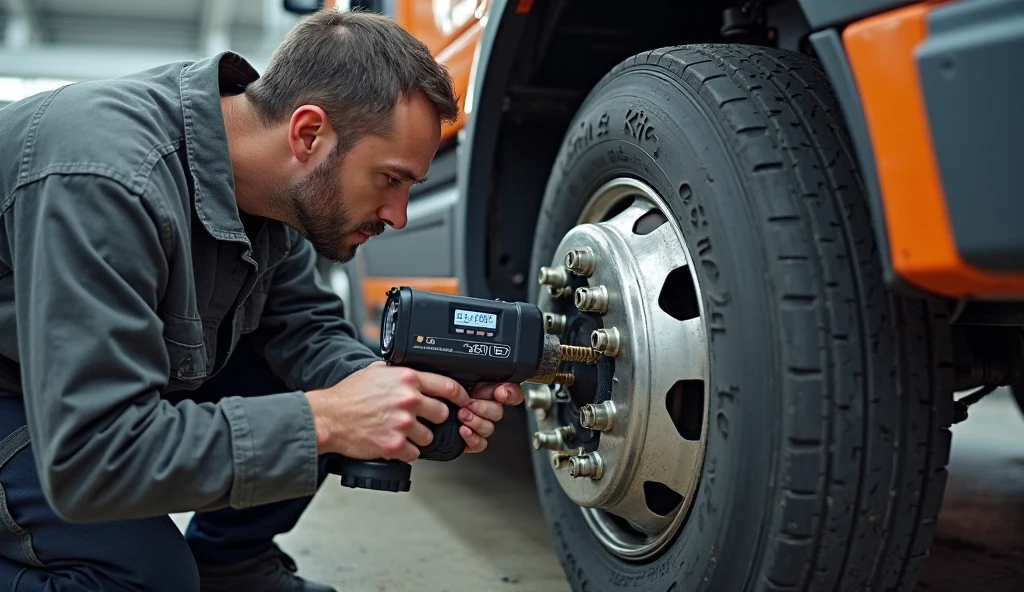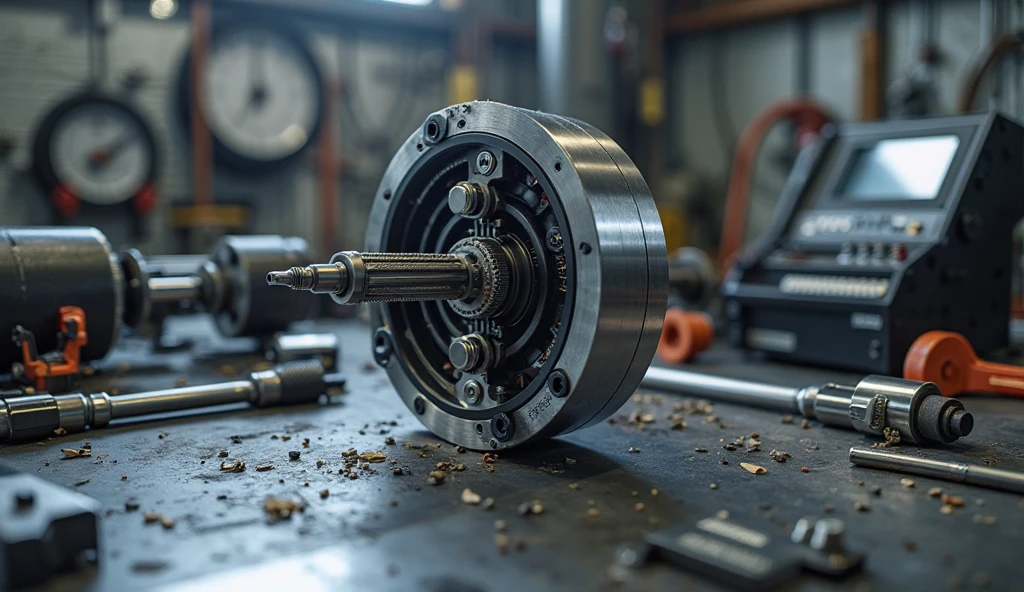Torque multipliers work by employing a mechanical advantage to boost output torque while reducing the necessary input force. This is achieved through the intricate interaction between gears, which converts a small input force into a significantly higher torque output. The combination of leverage and mechanical advantage in the design of these devices is key to their ability to amplify force so effectively. By implementing such principles, torque multipliers enable more efficient handling of heavy-duty fasteners, making tasks less strenuous and more precise.
A planetary gear system is central to the compact and effective design of torque multipliers. This system consists of a central sun gear, multiple satellite gears called planet gears, and an outer ring gear. These components work together to provide a highly efficient mechanism that allows for variable torque distribution. This setup ensures that torque multipliers can deliver significant torque without increasing the physical size of the tool, which is particularly beneficial in spaces with limited access. Mastering the mechanics of planetary gear systems is essential for mechanics, as these systems greatly influence the performance and efficiency of torque multipliers.
Torque ratios measure the extent to which output torque is amplified relative to the input torque, with common configurations being 5:1 and 25:1. The choice between low and high torque ratios largely depends on the specific application at hand. For lighter tasks, a 5:1 ratio can be sufficient, enabling easy handling without excessive force. In contrast, more demanding operations may require a 25:1 ratio to deliver the necessary power. However, higher torque ratios, while providing greater force, necessitate careful handling to avoid over-tightening, thus highlighting the balance between power and precision required in torque applications.

While breaker bars are a staple tool for loosening tight fasteners, they come with several limitations, especially in heavy-duty scenarios. These tools require significant physical effort and often need to be positioned at specific angles to be effective. Furthermore, breaker bars can slip or even break under excessive stress, posing potential safety risks and possibly ruining the job at hand. In high-torque applications, where maximum force is needed consistently and safely, torque multipliers provide a more reliable alternative by minimizing physical strain and enhancing safety.
Impact guns offer the advantage of speed with quick bursts of high torque, making them ideal for tasks where time efficiency is critical. However, their lack of precision can be a drawback in applications requiring controlled torque settings. On the other hand, torque multipliers deliver precise torque application, an essential feature for critical fastening tasks. This precision ensures that bolts are tightened to exact specifications, preventing issues like over-tightening or inadequate fastening. Mechanics must weigh the need for speed against the requirement for precision when selecting between these tools for specific tasks.
Torque multipliers are especially beneficial in high-torque applications, unlike engine torque wrenches, which excel at lighter tasks or achieving final torque settings. For mechanics working with larger vehicles and heavy equipment, torque multipliers enhance efficiency by providing the necessary power without excessive effort. When choosing the right tool, understanding the specific requirements of the task is crucial. Opting for a torque multiplier in appropriate contexts not only reduces physical strain but also maximizes effectiveness, particularly when dealing with demanding, high-torque situations.
Torque multipliers are instrumental in reducing physical strain on mechanics during high-torque applications. These devices allow mechanics to apply torque with minimal effort, significantly lowering the risk of injuries caused by overexertion. Moreover, many torque multipliers feature ergonomic designs, enhancing comfort during prolonged use. These tools not only improve safety but also enable mechanics to perform tasks more effectively, ensuring both the well-being of the workforce and the quality of work produced.
Achieving precision in high-torque tasks is a critical advantage offered by torque multipliers. These tools deliver controlled torque output, ensuring fasteners are tightened to precise specifications, which is vital in sectors like automotive maintenance where component integrity is crucial for safety. Using torque multipliers, mechanics can consistently achieve optimal results, enhancing the quality and reliability of their work across various tasks.
Torque multipliers are effective in preventing over-tightening, which can lead to stripped threads or bolt failure. By setting specific torque levels, these tools avoid the excessive force application that might otherwise result in equipment or component damage. Utilizing torque multipliers not only protects against such issues but also contributes to extending equipment lifespan and reducing maintenance costs, making them an invaluable asset in any heavy-duty application.

Hand-operated torque multipliers are indispensable tools for mechanics working in remote or challenging locations. Due to their portability and independence from power sources, they are ideal for field repairs where other options might be limited. These multipliers provide the versatility necessary to carry out various tasks while ensuring reliable torque delivery. Often utilized in emergency settings, hand-operated models enable quick fixes without relying on power tools, making them a practical choice for environments like mines or on-the-sea operations where power access is unreliable.
In industrial environments, pneumatic torque multipliers are the tools of choice for heavy-duty applications. By leveraging compressed air, these multipliers achieve high torque outputs needed for assembly lines and production floors. Their speed and efficiency make them favorites among operators, contributing to streamlined workflows. However, their dependence on compressed air means they are best suited for facilities that have the infrastructure to support such requirements, ensuring that operations are both effective and continuously running without interruption.
Electric torque multipliers offer an ideal balance between power and portability, making them highly versatile across various sectors. These tools, equipped with the capability to operate in both mobile and stationary conditions, provide flexibility to mechanics and technicians who require precision in their work. Not only do they deliver precise torque settings, but their ease of use elevates their popularity in automotive and industrial applications. This combination of attributes makes electric multipliers crucial in scenarios demanding reliable performance and adaptability.
Regular calibration of torque multipliers is crucial for ensuring precise torque application, helping to avert the dangers of over-tightening or under-tightening fasteners. Consistent calibration schedules are particularly important in professional settings where reliability is paramount. For maintaining tool integrity, address wear and tear promptly, adapting repair strategies from diverse industries. Avoiding excessive force or improper handling can prevent the need for premature repairs, ensuring the tool's longevity and performance.
Proper handling techniques play an essential role in extending the lifespan of your torque multipliers. Mechanics should adhere strictly to manufacturer guidelines when it comes to usage and maintenance protocols. This adherence not only minimizes gear wear but also ensures that tools deliver optimal performance over time. Good handling practices are synonymous with safety and efficiency, significantly reducing the potential for unexpected tool failures during operation.
Addressing stubborn fasteners effectively requires adherence to strict safety protocols to prevent accidents and tool damage. When using torque multipliers, understanding when to employ additional techniques like applying heat or lubrication is important for easing the loosening process without overstressing the tool. Such practices not only enhance user safety but also contribute to tool longevity, enabling consistent performance even in challenging applications.
The main advantage of using a torque multiplier is its ability to amplify force effectively while minimizing the physical effort required. This makes it ideal for handling high-torque applications safely and precisely.
A planetary gear system benefits torque multipliers by enabling significant torque without increasing the tool's physical size. This gear setup allows for efficient torque distribution and is particularly useful in tight spaces.
Hand-operated torque multipliers are portable and suitable for field repairs without power reliance, while pneumatic multipliers leverage compressed air for high torque outputs, making them ideal for industrial settings.
Yes, torque multipliers can prevent bolt damage by allowing users to set specific torque levels, thereby avoiding excessive force application and ensuring fasteners are tightened to precise specifications.